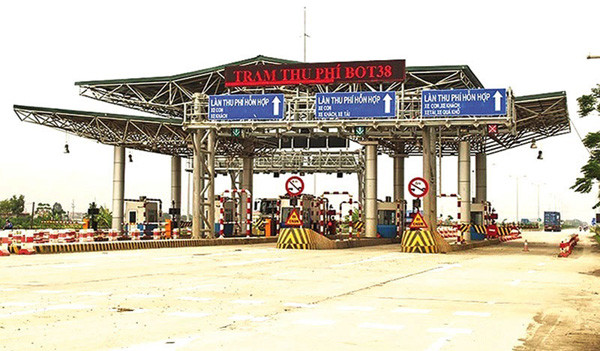In late July, the Ministry of Transport (MoT) sent a dispatch to the Ministry of Justice seeking the latter’s consensus in allowing VINA2 Investment and Construction JSC to transfer its stake in a project to one corporate entity and an individual investor outside the project’s consortium.
VINA2 is one of three investors in a BOT project on the renewal and upgrading of National Highway 38’s road section connecting the national highways No.1 and No.5.
This is also the first time a stake transfer at a BOT-related enterprise has taken place between a legal entity and individual investor.

This rare case began a year ago when the project developer first sought approval from the MoT to allow VINA2 to transfer its entire 31 per cent stake to Vo Phi Hai, who would hold 28 per cent of the stake, and to Investment Mining Port JSC (IMPORT) that will keep the remaining 3 per cent.
In the dispatch, the MoT assumed that the stake transfer to Hai is simply a capital restructuring step of the project enterprise, as after the move two remaining businesses in the contractor consortium (IMPORT with 40 per cent stake and Licogi 16 with 29 per cent) still have full financial, technical, and governance capacity to continue to implement the project contract.
In addition, leveraging the investors’ commitment, the stake transfer does not alter the apparatus as well as the personnel involved in the project’s operation and management, while it also still complies to the contract regulations.
“Hence, after the transfer, the parties acquiring the stake still ensure the financial, technical, and government capacity to carry out this contract as well as other relevant contracts,” noted an MoT executive.
Tran Chung, chairman of the Vietnam Association of Road System Investors (VARSI), told VIR that it was regretful that such a straightforward case took around a year to settle.
“Capital contribution, divestment, or transfer deals depend on the investors’ business plans in each particular period. Stake transfer at BOT projects during exploitation to either corporate or individual investors then needs to be swiftly handled, avoiding opportunities being missing out on when getting the approval,” said Chung.
He also proposed to create more space for stake transfers of BOT project investors, gearing towards constituting a more attractive financial market to coax more investors into transport infrastructure development.
The plan to renew and upgrade the National Highway No.38’s road section connecting the national highways No.1 and No.5 was granted an investment certificate by the Ministry of Planning and Investment in 2014. In late 2017, construction was completed and the MoT approved the implementation of toll collection, along with road operation and maintenance from 2018.
Through an official document, Luu Quang Lam, board chairman of the project developer, reaffirmed that members of the investment consortium and associated lenders have all agreed to the stake transfer.
According to the Law on Public-Private Partnership Investment, financiers are allowed to transfer their stake to other investors and their capital contribution to each other. Simultaneously, the transition provision of the law also greenlights further implementation of regulations in the project’s contract.
Stake transfer is then based on the project’s contract and relevant regulations at the time of contract signing.
Source: VIR